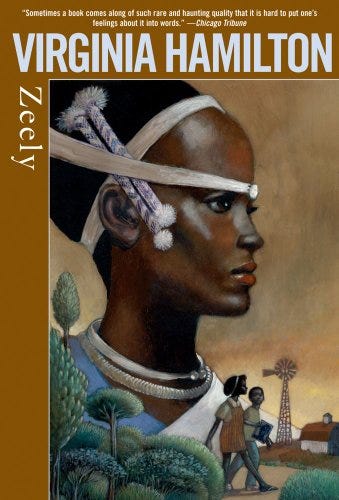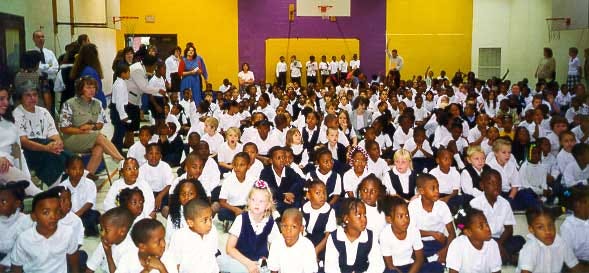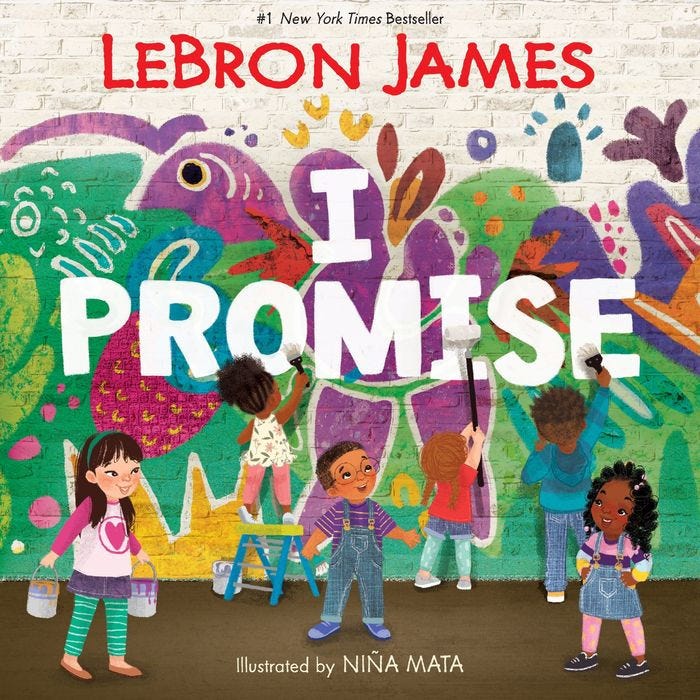Rookie Season: Debuts
Extra seasoning for your everyday food for thought
Genre: Children’s Fiction
“‘What do you think folks did a long time ago,’ Uncle Ross said, ‘when there was maybe a whole family of eight or ten sitting around this table? They would laugh and talk.’”
— Virginia Hamilton, Zeely
Back Cover (Aladdin Paperbacks):
“‘We’ll spend the whole summer on the farm with Uncle Ross. I ought to make up something special just because we’ve never ever gone alone like this!’ And the first thing Elizabeth does is give herself and her younger brother, John, new names—Geeder and Toeboy.
The farm is special too, with its pump house, pond, and especially the prize razorback hogs that belong to Nat Tayber and his daughter, Zeely. Zeely Tayber is tall and dignified, unlike anyone else in the small town. Geeder is fascinated. And when she finds a picture of a Watutsi queen who looks like she could be Zeely’s twin, Geeder knows she is in the presence of royalty.”
Zeely is the 1967 debut by American author Virginia Hamilton (1936 – 2002), the youngest of five children, who graduated top of her class and received a full scholarship to Antioch College in Yellow Springs, Ohio, before transferring to Ohio State University in 1956 to major in literature and creative writing.
Moving to New York City, a few years later (1958), Hamilton worked as a museum receptionist, accountant, and nightclub singer, dreaming one day of becoming a published author.
As fate would have it, during her lifetime, Virginia Hamilton wrote and published 41 books in multiple genres, spanning: children books, folktales, mysteries, science fiction, and biography.
She won every major award in children’s literature, becoming the first African American (male or female) to win the Newbery Medal in 1975.12
“From then on, she set her mind on seeing everything. The waning day she saw as clear as morning in the country; her father’s words, bright as sunlight in the fields. ‘And now, I leave it all to you.’”
— Virginia Hamilton, Zeely
Did You Know?
Did you know that Virginia Hamilton described her work as, “Liberation Literature?”34
“She changed the landscape in creating an awareness of African American characters and families and bringing an understanding of the fact that we all want the same things in our stories even though our characters may look different. That’s as important today as it was yesterday.”
— Julie K. Rubini
Tell Me More . . .
After meeting her husband (the poet Arnold Adoff) in New York City, Virginia and Arnold liberated themselves from the “Big Apple” to build their dream home together in 1969 in Yellow Springs, Ohio, on the last remaining acres of the old Hamilton/Perry family farm—where Virginia Hamilton originally grew up.
As quoted in a New York Times article, published in 2002, the year of her passing:
“Ms. Hamilton’s grandfather Levi Perry was born a slave in Virginia. Once a year, she wrote, he gathered his children around him. ‘Set down,’ he would say, ‘and I will tell you about slavery and why I ran, so that it will never happen to you.’ Ms. Hamilton was named Virginia in remembrance of his flight.”5
Some Food For Thought:
Reading can take you anywhere. It’s a powerful tool that can be used to inspire, liberate, or simply express ourselves.
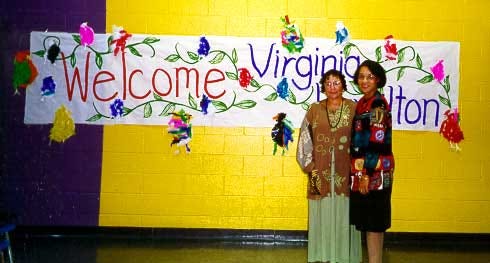
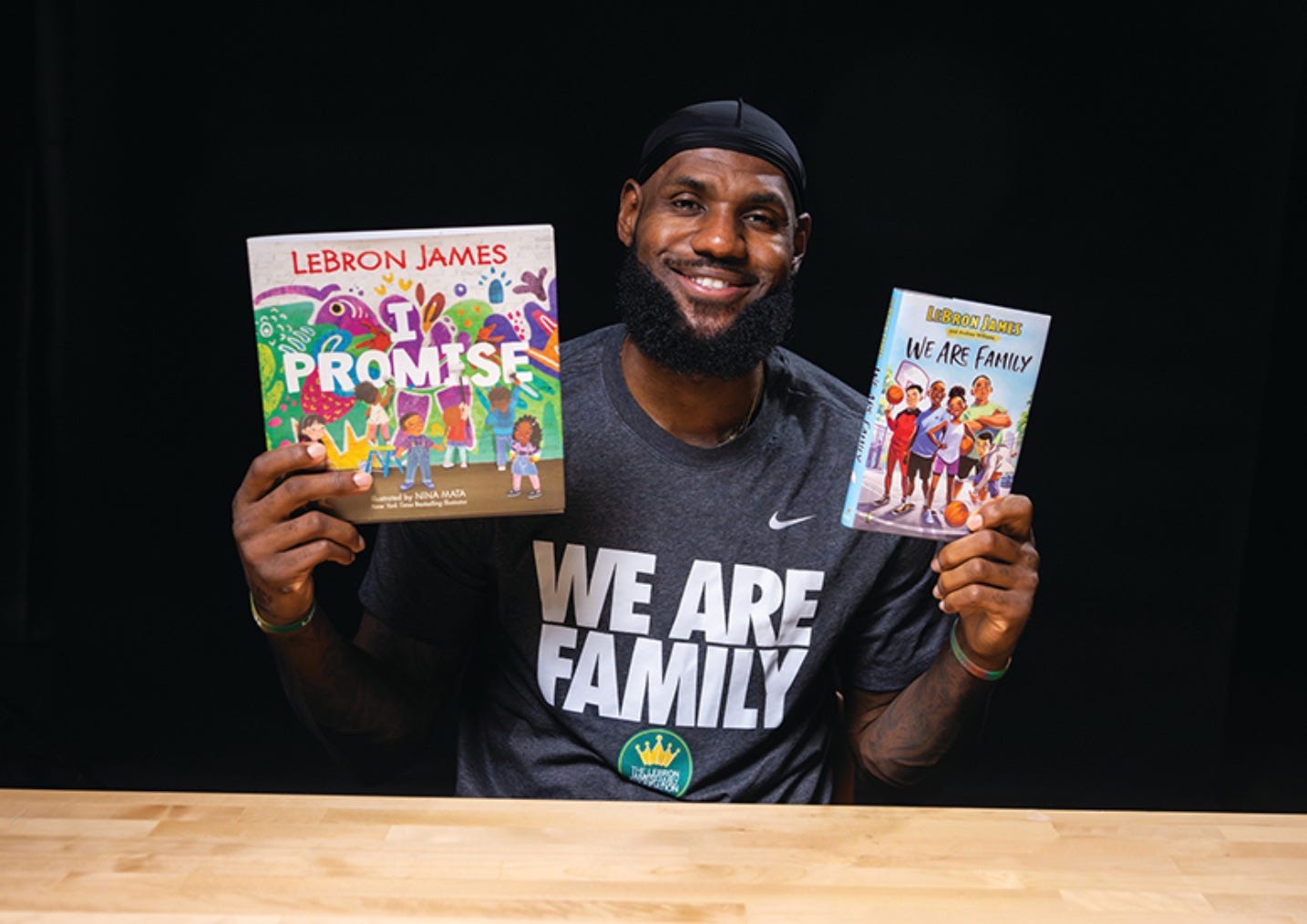
“You can learn so much from books. They can take you places you’ve never been, put you in situations you’ve never considered, help you learn lessons and find inspiration.”
— LeBron James
Rookie Season: Debuts
A STEM Grew Petals Newsletter
Next issue is next Thursday:
11am (Pacific), 2pm (Eastern)
Want Daily Quotes?
Follow on Instagram (at Captioned Black Art)
Made in Silicon Valley (with love) by author Jafari Joseph.
Copyright (C) 2025 My STEM Grew Petals Publishing. All rights reserved.
STEM Grew Petals is a reader-supported publication. To receive new posts and support my work, consider becoming a free or paid subscriber.


